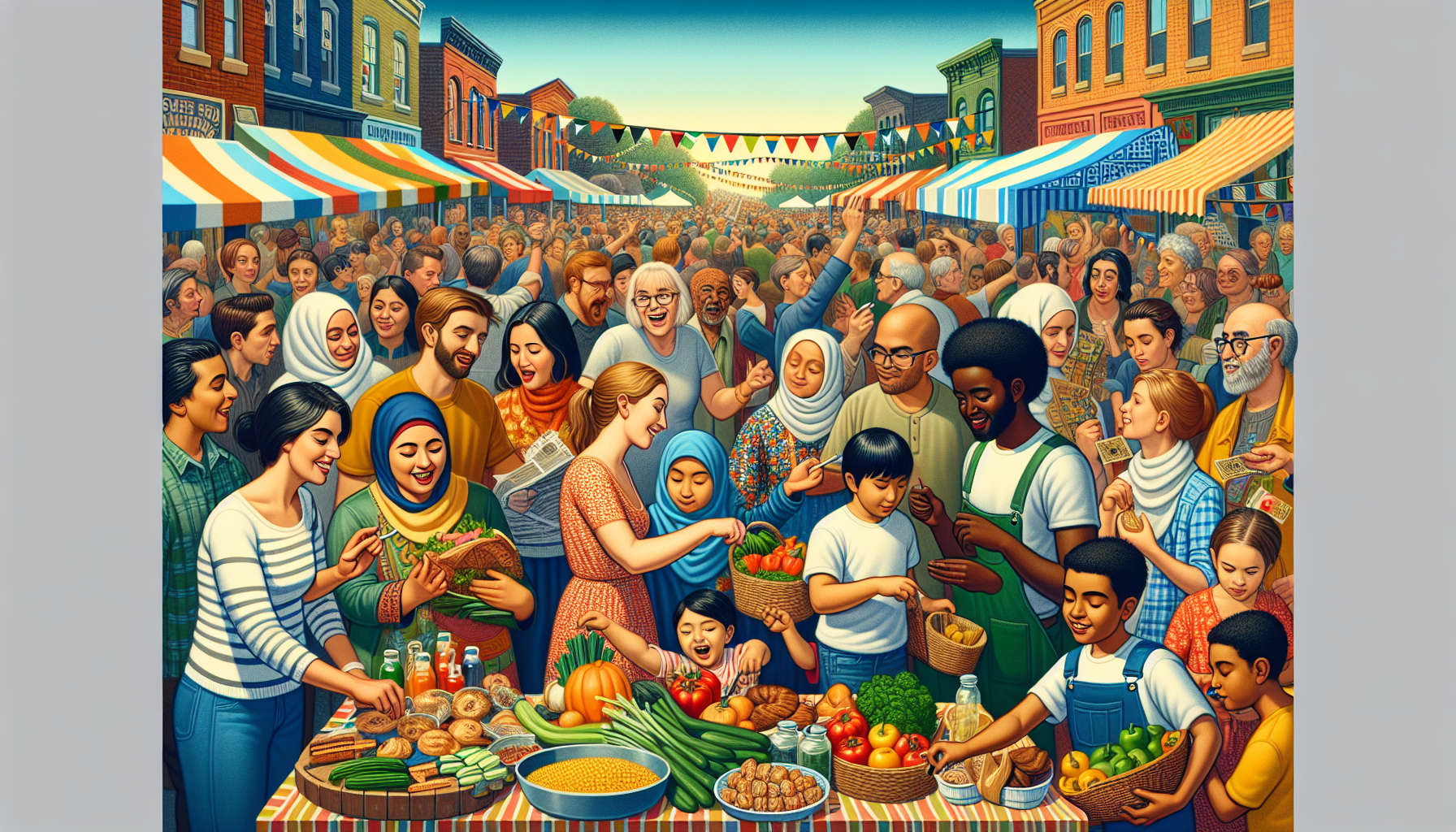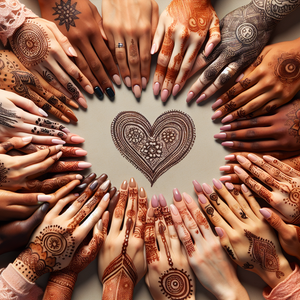The Northern Colonies and the Birth of Consumer Culture

One of the cornerstones of consumer culture in the Northern Colonies was the establishment of local shops and marketplaces. Towns like Boston, New York, and Philadelphia became bustling hubs of commerce, where merchants sold a variety of goods ranging from everyday necessities to luxury items. The proliferation of shops provided residents with access to a wider range of products than ever before, embodying the shift from subsistence living to a market-oriented economy. For instance, the emergence of apothecaries in these towns was not just about health; it represented a new way of life where individuals could purchase remedies and health-related goods, emphasizing a growing reliance on commerce rather than traditional methods. Additionally, the presence of general stores allowed communities to purchase diverse goods, from textiles to tools, catering to the varied needs of colonial families. These stores often became social centers where people gathered, exchanged news, and formed community bonds.
Trade Fairs and Social Interaction
Trade fairs played a pivotal role in shaping consumer habits and fostering social connections. These events attracted people from surrounding areas, turning into vibrant gatherings that went beyond mere commerce. They provided a platform for social interaction, cultural exchange, and the establishment of communal identities. The fairs allowed local artisans to showcase their craftsmanship while consumers could engage with a variety of products, from handmade goods to imported luxuries. In cities like Newport, Rhode Island, trade fairs became prominent by the late 17th century, where merchants would display an array of wares, signaling not only economic activity but also the growing importance of consumer choice. These fairs were instrumental in shaping a sense of community, as they brought together diverse groups and allowed for the exchange of ideas and goods. Moreover, the social interactions fostered by these events helped to establish networks of trust and collaboration among merchants and consumers, further embedding consumer culture in the societal fabric.
Importation and the Transformation of Taste
As the Northern Colonies developed commercial ties with Europe and the Caribbean, the demand for imported goods surged. Items such as tea, sugar, and fine textiles became symbols of status and sophistication. This growing appetite for foreign products marked a definitive shift in consumer behavior, with people beginning to associate the ownership of these goods with social standing. The rise of consumer culture also meant that local artisans had to adapt to changing tastes. For example, furniture makers in the Northern Colonies started to produce pieces that mirrored European styles, catering to a clientele eager to emulate the lifestyles of the wealthy. This blending of local craftsmanship with foreign influences not only enhanced the local economy but also laid the groundwork for a distinct American aesthetic. The desire for imported goods also fueled the growth of transatlantic trade routes, further intertwining the economies of the colonies with global markets.
The Social Implications of Consumer Culture
The emergence of consumer culture in the Northern Colonies had profound social implications. It fostered individualism as people began to express their identities through their consumption choices. This shift was not without its challenges, as it also led to social stratification, with wealthier individuals able to indulge in luxury items while poorer residents struggled to meet basic needs. Moreover, the new consumer habits prompted discussions around moral and ethical considerations. Religious leaders and community members often debated the implications of excessive consumption, warning against materialism while advocating for a balance between economic prosperity and community values. This tension between consumerism and morality reflected the complexities of colonial life, as communities grappled with their evolving identities. The engagement with consumer culture also led to the emergence of a more defined middle class, whose values and aspirations increasingly influenced the broader societal framework.
The Northern Colonies were instrumental in the birth of American consumer culture, transforming local economies and social landscapes in profound ways. Through the establishment of shops, the significance of trade fairs, and the growing demand for imported goods, these colonies laid the groundwork for a market-driven society. While the rise of consumer culture brought about opportunities for economic growth and social connection, it also prompted critical discussions about identity, morality, and community values. As we reflect on this pivotal era, it is clear that the Northern Colonies not only contributed to the economic tapestry of early America but also set the stage for the complex relationship between consumption and identity that continues to resonate today. The evolution of consumer culture in these colonies exemplifies how commerce can shape social dynamics, creating both opportunities and challenges in the pursuit of prosperity and identity.
Market Research Analyst
Nielsen, Ipsos, and various marketing agencies
Core Responsibilities
Analyze market trends to identify opportunities for new products and services.
Conduct surveys and focus groups to gauge consumer preferences and behaviors.
Prepare reports and presentations to communicate findings to stakeholders.
Required Skills
Strong analytical skills with proficiency in data analysis tools (e.g., Excel, SPSS).
Excellent communication skills to present insights clearly.
Familiarity with consumer behavior theories and market segmentation.
E-commerce Merchandising Specialist
Amazon, eBay, and various retail companies with online stores
Core Responsibilities
Curate and manage online product assortments to optimize sales and enhance customer experience.
Analyze sales data and customer feedback to make informed decisions on product offerings.
Collaborate with marketing teams to create promotions that drive traffic and conversion.
Required Skills
Proficiency in e-commerce platforms (e.g., Shopify, Magento) and analytics tools (e.g., Google Analytics).
Understanding of SEO and digital marketing strategies.
Strong attention to detail and creative problem-solving abilities.
Brand Strategist
Advertising agencies, consumer goods companies, and marketing firms
Core Responsibilities
Develop and implement brand strategies that resonate with target consumer segments.
Conduct competitive analysis to identify brand positioning opportunities.
Work with cross-functional teams to ensure consistent brand messaging across channels.
Required Skills
Strong understanding of consumer psychology and market trends.
Ability to think creatively and strategically about brand development.
Excellent project management and communication skills.
Cultural Anthropologist (Consumer Behavior)
Research firms, universities, and marketing consultancy firms
Core Responsibilities
Conduct ethnographic research to understand consumer behavior and cultural influences on purchasing decisions.
Analyze qualitative data to identify trends and insights that inform marketing strategies.
Collaborate with brands to develop culturally relevant product offerings.
Required Skills
Strong qualitative research skills and experience with fieldwork.
Ability to interpret complex social dynamics and their impact on consumer choices.
Good writing and presentation skills for sharing research findings.
Retail Operations Manager
Major retail chains like Walmart, Target, and various specialty retailers
Core Responsibilities
Oversee daily operations of retail stores, ensuring optimal customer service and operational efficiency.
Manage inventory levels and merchandising strategies to enhance sales.
Train and mentor staff to promote a positive shopping experience.
Required Skills
Strong leadership and team management skills.
Experience with inventory management and retail analytics.
Ability to analyze sales data and implement operational improvements.


